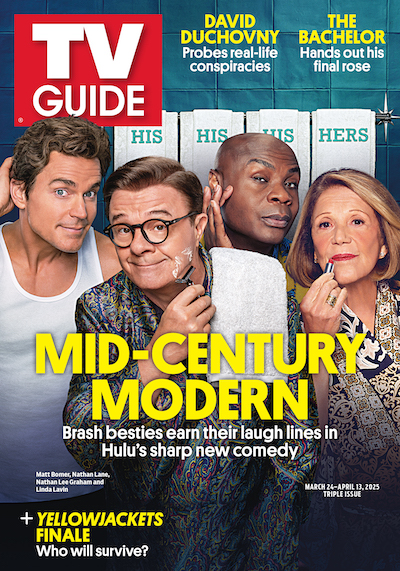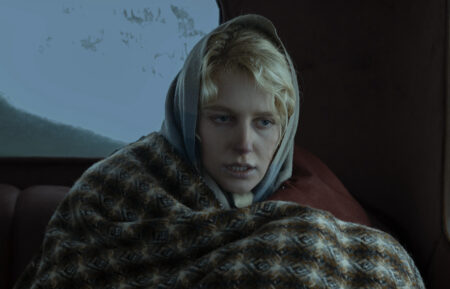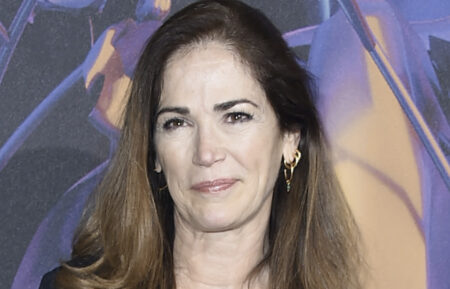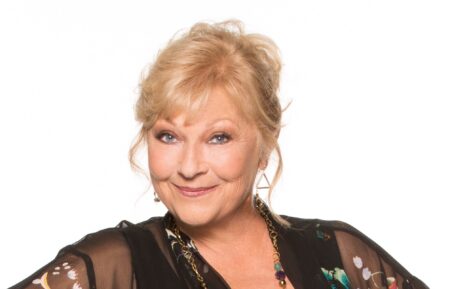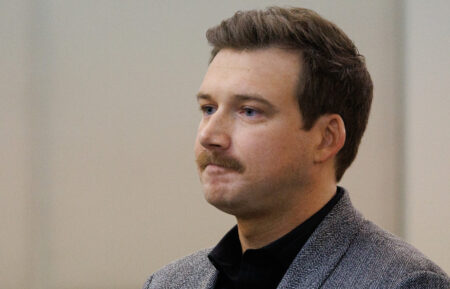‘Medici: The Magnificent’ EP Talks Casting Lead Daniel Sharman & the Season 2 Time Jump
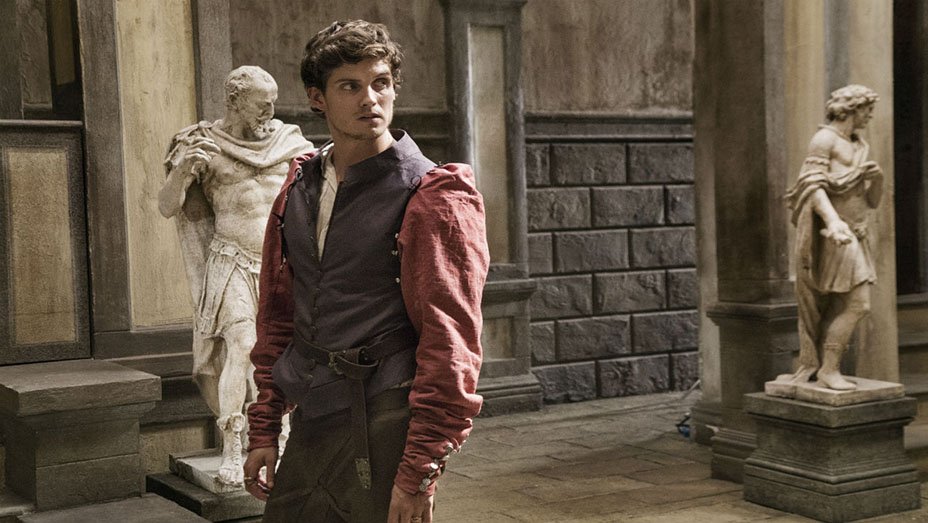
Q&A
Let’s go back in time. To the 15th century to be exact.
That’s where we begin the continuing story of the powerful Medici family in the second season of Netflix’s historical drama, Medici: The Magnificent, produced by Lux Vide, whose CEO Luca Bernabei, is an executive producer alongside Frank Spotnitz. But, in the new episodes, which dropped on Netflix on Friday, we meet Lorenzo de Medici (Daniel Sharman from Teen Wolf and Fear the Walking Dead) at a crucial time in the banking family’s history. We’re also meeting him 20 years after the events in the series’ first season, which was titled Medici: Masters of Florence.
In the first few minutes of the new season, we meet the now-adult Lorenzo, his brother Giuliano (Bradley James) and their father, Piero (Julian Sands) but, as usually happens in period dramas, treacherous events unfold quickly and we’ll see the brothers’ lives are changed drastically. The eight-episode series, which also stars Sean Bean (Game of Thrones), is swift-moving, beautiful — with visuals shot in Italy — and captivating, with an engaging cast that should be prime viewing on your Netflix queue.
To find out more about the second season, TV Insider spoke with Spotnitz (The X-Files) about the time jump from Season 1, casting the lead role, and how the happenings in the 15th century impacted the present day.
The second series jumps ahead in time from the first. What is it about this time period that made work best for the story you wanted to tell?
Frank Spotnitz: When my collaborator Nicholas Meyer and I first started looking at the saga of the Medici family, it spread over centuries and there were so many great stories and characters that we weren’t really sure where to begin. We ultimately decided to focus first on the relationship between Cosimo (Bodyguard‘s Richard Madden) and his father Giovanni (Academy Award-winner Dustin Hoffman), the patriarch who got the family into banking.
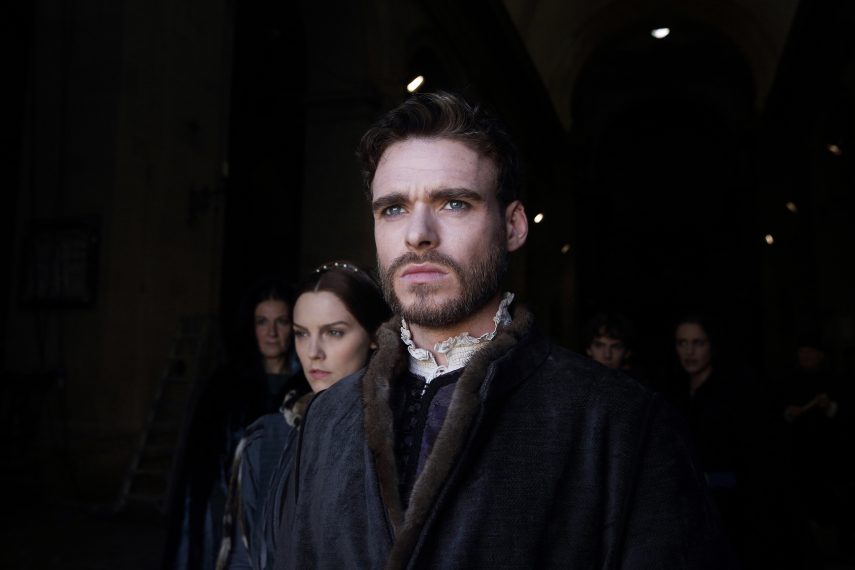
Richard Madden in Medici: Masters of Florence (Netflix)
But it was clear that the greatest and most dramatic character of them all was Lorenzo the Magnificent. So when we began this season, there really was no question at all that he would be the focus. In fact, we teased his character in the final scene of the previous season, when Lucrezia (then played by Valentina Belle) is pregnant and announces she will call the baby Lorenzo. But we knew Lorenzo was too big and dramatic a character to contain in a single season, so these eight episodes only take the audience to the midpoint in his life. The next season, which we’ve just finished shooting, will be devoted to the final chapters of his life.
What are some of the issues you wanted to explore in the second series that contemporary audiences can also relate to?
The theme in the previous season was “sometimes you have to do bad to do good.” In this season, Lorenzo is young, brilliant, and idealistic and determines to “do good to do good.” It turns out it’s not that easy. The entrenched forces of the older generation are willing to resort to any means necessary to protect their power and resist change. That seemed an enormously contemporary theme, one that has only grown more relevant over the past year.

The cast of Medici, Season 2 (Netflix)
Lorenzo — and Daniel Sharman playing him — carries much of the series on his shoulders (and does a great job!). What does Daniel bring to the role?
This was such a difficult role to cast! The truth is that Lorenzo seems an almost unbelievable character. He was good at virtually everything, and from a very young age. We needed someone who not only had the presence, but the intelligence to make us believe he truly was this extraordinary figure, despite his youth. Daniel just seemed to inhabit the role from day one. He made it look easy, although I know it wasn’t at all.
Lorenzo has much compassion for the classes that are struggling to survive even though he’s of a higher class. Where does that compassion come from?
Lorenzo was born into privilege and had all the benefits of a Renaissance education, so in our telling he was really very enlightened and determined to use his considerable power and influence to change the world for the better. It is extraordinary when you look at how much money the Medici family spent on public works and providing for the common man, something unthinkable for modern bankers. And of course he was also one of the most important art patrons in history.
Where did you shoot the series and how was the location advantageous in telling the story?
It makes a massive difference being able to shoot in Italy, as opposed to doubling it in an Eastern Europe country, as so many other productions are forced to do for budgetary reasons. We did some shooting on sound stages north of Rome, but we were incredibly privileged to have extraordinary access to locations throughout Tuscany and in the city of Mantua in Lombardy as well. We went to these gorgeous villages like Pienza, Montepulciano and Volterra where you can shoot huge vistas that look virtually the same as they did in the 15th century. It was a joy to come to work, and the images on screen are simply breathtaking.
The Medici story has been told before — did you find anything surprising or unexpected in your research that sets this series apart?
I think we in the modern age tend to have a kind of casual arrogance, assuming that we are the most sophisticated generation because we are the latest. But it is deeply humbling to look at the Medici family and what they accomplished more than four centuries ago. They may indeed have “done bad to do good,” but they advanced our civilization in ways that seem almost unimaginable today. I found their ambition deeply inspiring, and the sacrifices they made to win their achievements very moving. They had faith that they could change the world, and they did.
Medici: The Magnificent, Season 2, Streaming, Netflix
From TV Guide Magazine
How Hulu's 'Mid-Century Modern' Is a 'Golden Girls' for Our Times
Settle in for some older and bolder laughs with the BFFs of a certain age in the new comedy starring Nathan Lane, Matt Bomer, and Nathan Lee Graham. Read the story now on TV Insider.



